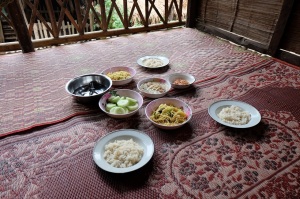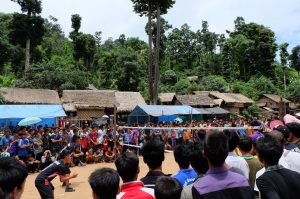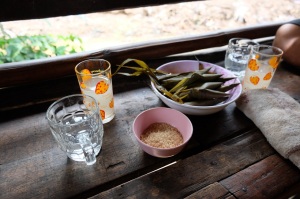Between September 3rd and 5th, Karenni refugees celebrated Deeku festival. The elderly leaders of our animist religion who preserve and are knowledgeable about our ethnic’s traditional ways organise our traditional festivals. They lead in predicting which days are suitable for celebrating Deeku festival. These leaders read a chicken bone on Monday 1st September. As a result of the prediction based on the chicken bone, this year the Deeku festival started on the 3rd September and ended on the 5th September. After this, people can make preparations for hosting their friends and relatives. The festival must take place within the days predicted by the chicken bone.

Deeku is celebrated by Karenni people inviting all of their relatives and guests to their homes. At their homes, they will provide food especially deeku, traditional wine and meat. Karenni people will visit many homes where they eat, drink and enjoy each other’s company.

During the festival, we closed our school for two days to allow our student to celebrate. In Karenni Refugee Camp 1, there was a ceremony in section 9. Prior to making this ceremony, there were competitions for the younger camp citizens on how to package the traditional deeku. There were also dancing and singing competitions. Our community also holds sporting competitions during this time. These included football, volleyball and caneball.
There were prayers by the traditional leaders for all human beings, animals and the environment. Additionally, there was an explanation about the history of the Karenni people, our forefathers and the Deeku Festival. Leaders of the NGOs in the camp gave speeches of encouragement to our community. Traditional dances and songs were presented to the audiences. After the ceremony, traditional fireworks were released into the air.
This celebration is very important for our Karenni to show solidarity and pride in our traditional ways. It is an opportunity for all Karenni people, young and old to dance together, wear their traditional clothes, play their traditional music and visit house to house.

